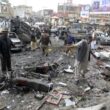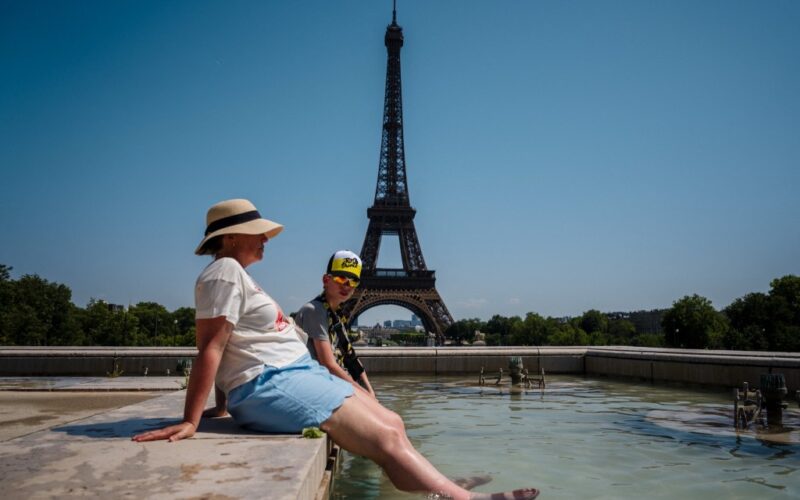The Eiffel Tower closed early on Tuesday as a sweltering heat wave gripped parts of Europe.
The attraction closed at 4 p.m. local time — with last entry at 2:30 p.m. — as temperatures reached approximately 101 degrees Fahrenheit, according to a statement on the landmark’s website.
The tower will be closed all day on Wednesday, too, as a Red Warning for Extreme High Temperatures remains in effect through 12 a.m. Thursday.
“Due to the current heat wave, the Eiffel Tower is taking measures to ensure the comfort and safety of our visitors and staff,” the statement reads.
Visitors whose tickets were affected by the closures will be automatically refunded, while those who haven’t purchased tickets were advised to try again on or after Thursday when temperatures in the region are expected to cool down.
Elsewhere in Europe, both Portugal and Spain broke heat records this week while London recorded the hottest opening day ever at Wimbledon (93 degrees Fahrenheit).
In Italy, a construction worker in Bologna collapsed while repaving a parking lot and died.
The conditions have also led to wildfires in Scotland’s Cairngorms mountains.
The UN’s World Meteorological Organization said the southern Spanish town of El Granado hit about 115 degrees Fahrenheit last Saturday, the highest temperature ever recorded in Spain.

“Everybody is at risk,” said Clare Nullis, a spokesperson for the WMO. “If you go out without water in the middle of the day, to do jogging, have a bike ride, you will probably have health problems or even die.”
“What is exceptional — and I would stress exceptional but not unprecedented — is the time of year,” Nullis added. “We are July 1, and we are seeing episodes of extreme heat which normally we would see later on.”








